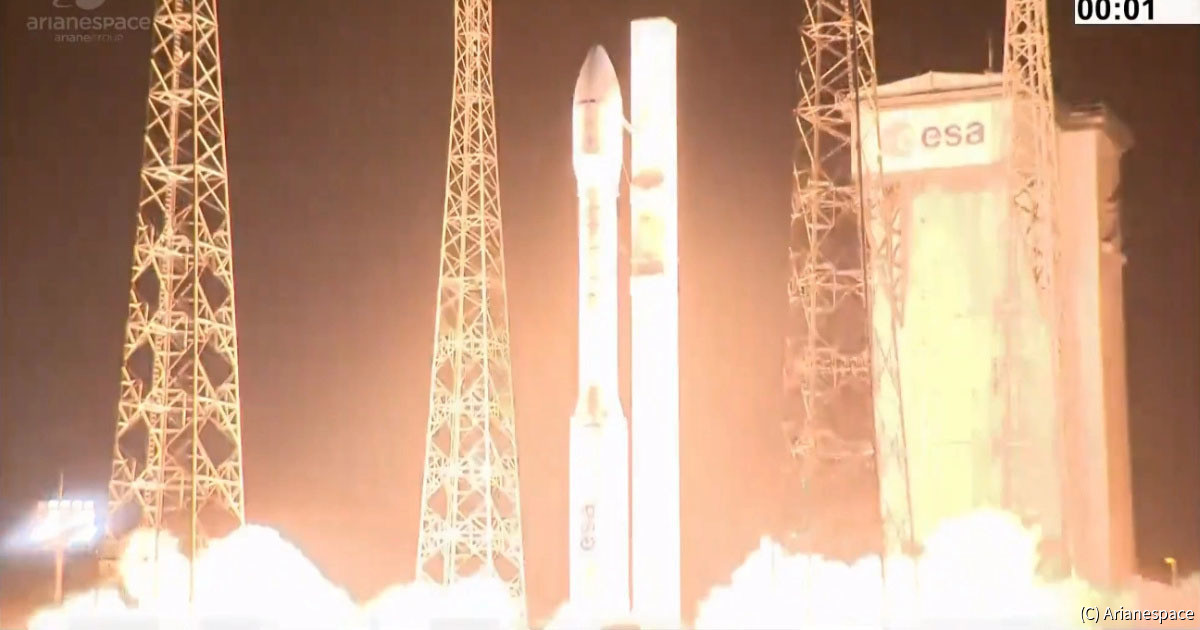
アリアンスペース:ロケット打ち上げ失敗 :SEOSat-Ingenio、TARANIS(動画):
Arianespace: Rocket launch failure: SEOSat-Ingenio, TARANIS:
阿里安太空:火箭发射失败:SEOSat-Ingenio,TARANIS
ー2019年に続き2度目ー
アリアンスペース:
フランスのロケット会社「アリアンスペース」は202年11月17日、
小型ロケット「ヴェガ」17号機(VV17)の打ち上げに失敗した。
組み立てミスが原因である可能性が高いという。
「ヴェガ」:
2019年7月にも、打ち上げに失敗。
今年9月に飛行を再開し、打ち上げに成功したばかりだった。
ロケット打ち上げ:
11月17日10時52分、南米仏領ギアナにあるギアナ宇宙センターから離昇した。
第1段、第2段、そして第3段の燃焼は正常だった。
しかし、離昇から約8分後、第4段エンジン着火後に飛行経路を逸脱。
衛星の軌道投入に失敗した。
ロケットには:
スペイン政府・産業技術開発センター(CDTI)の地球観測衛星「SEOSat-Ingenio」と、
フランス国立宇宙研究センター(CNES)の地球観測衛星「タラニス(TARANIS)」が、
搭載されていた。
マイナビニュース
https://news.mynavi.jp/article/20201202-1550300/
Arianespace traces cause of Vega launch failure to ‘human error’
– Officials from Arianespace —
the French company that manages Vega rocket launches —
said Tuesday engineers reviewed telemetry data and documentation overnight, and found
the most likely cause of the launch failure was a case of human error.
Engineers concluded that
cables leading to thrust vector control actuators on the upper stage were inverted, apparently a mistake from the assembly of the upper stage engine,
according to Roland Lagier, Arianespace’s chief technical officer.
The thrust vector control system
pivots the upper stage engine nozzle to direct thrust, allowing the rocket to control its orientation and steering.
Spaceflight Now